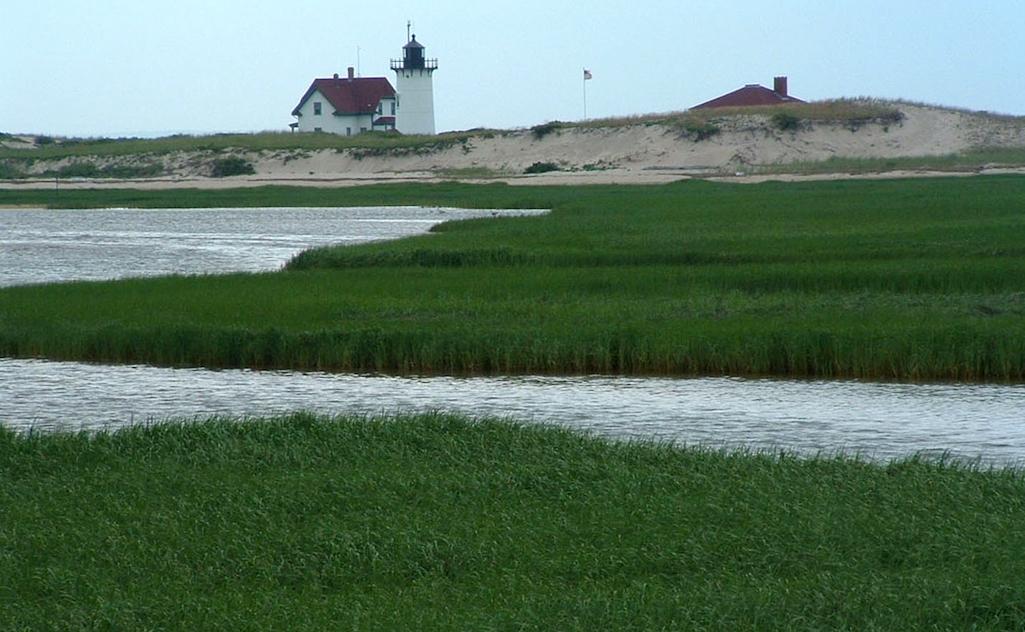
Cape Cod National Seashore staff plan to monitor their estuaries for a loss of seagrass meadows/NPS file
Pollution and warming waters are leading to declines in seagrasses in some marine estuaries, a problem that Cape Cod National Seashore staff is planning to take a closer look at next year.
Researchers at the Woods Hole Oceanographic Institution on Cape Cod have found that pollution and warming sea waters are shifting the estuaries from a benthic to a pelagically-dominated ecosystem. Put another way, seagrass meadows are dying out and opening the door for "the deleterious effects of harmful algal blooms, hypoxia, and the loss of species diversity and ecosystem function.”
Their analyses revealed recent and unexpectedly large increases in chlorophyll a concentrations, an indicator of microalgal blooms, in the water column throughout the estuary, which coincided with ongoing decreases in macroalgal density on the bottom of the estuary. In addition, the analyses showed an increase in temperature over the last 20 years and significant declines in oxygen and pH levels, among other changes.
Mattherw Long, an associate scientist in the Marine Chemistry and Geochemistry Department who works at Woods Hole, said eelgrass, a type of seagrass, provides a number of ecosystem benefits including stabilizing sediments and offering habitat for a variety of organisms. In addition, eelgrass is a great indicator of good estuarine water quality and also serves as a carbon sink.
“Carbon storage is extremely important across the world, and we're actively trying to figure out ways to store and sequester carbon. Seagrass meadows represent a really significant and efficient carbon storage sink,” Long said. “Let's not lose the seagrass meadows and the carbon sequestration that we already have in place, and let's actively maintain and restore seagrass meadows. With the loss of seagrass meadows, such as what we've seen in Waquoit Bay, we're actively releasing that carbon back to the atmosphere.”
Jordan Mora, a restoration ecologist with the Association to Preserve Cape Cod who worked with Long on the analysis, said their paper that was published late last month in Estuaries and Coasts, the journal of the Coastal and Estuarine Research Federation, "isn’t just significant because it demonstrates that the estuaries on southern Cape Cod, and more generally the northeastern U.S., are entering a new level of degradation where not even macroalgae or seaweeds can persist, but also because it provides clear evidence that long-term monitoring programs are extremely important and worth maintaining.”
At Cape Cod National Seashore, Geoffrey Sanders, chief of natural resource management and science, said in an email that they "are seeing a similar pattern in the park of a shift from rooted, benthic seagrass vegetation to pelagic species that exist in the water column like algae and phytoplankton. This type of trend can be considered a deterioration of ecosystem condition. We have a project starting in FY24 to look into this further."


